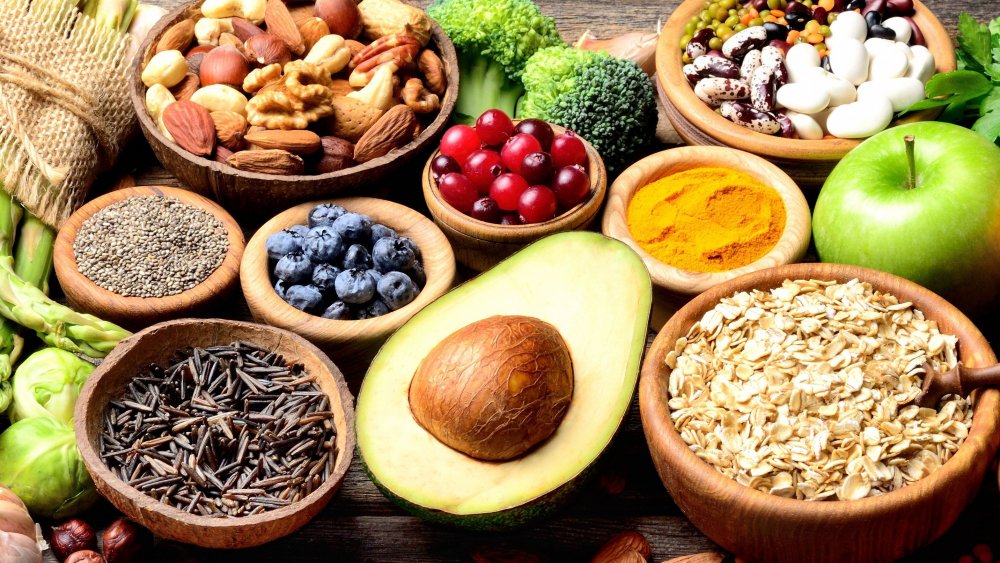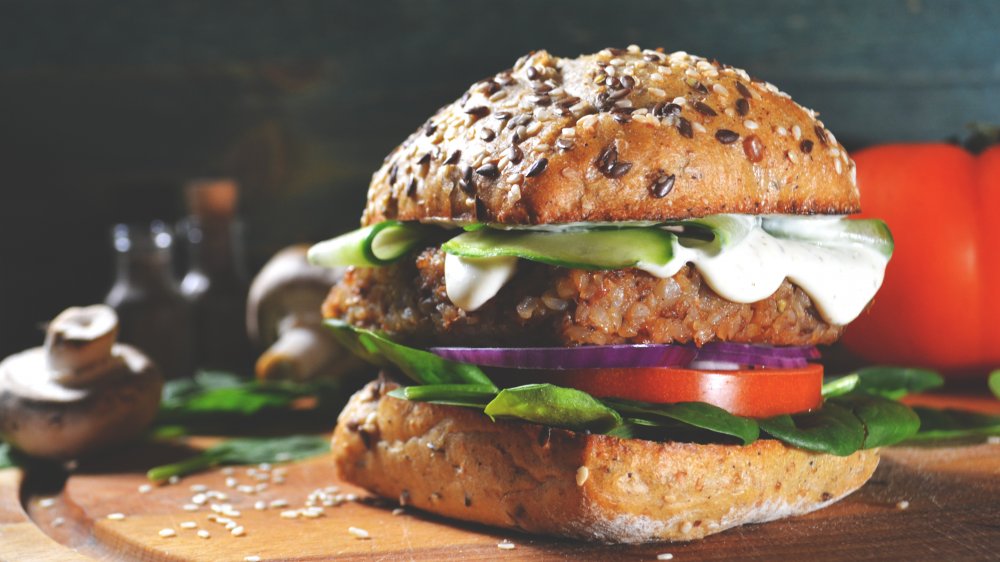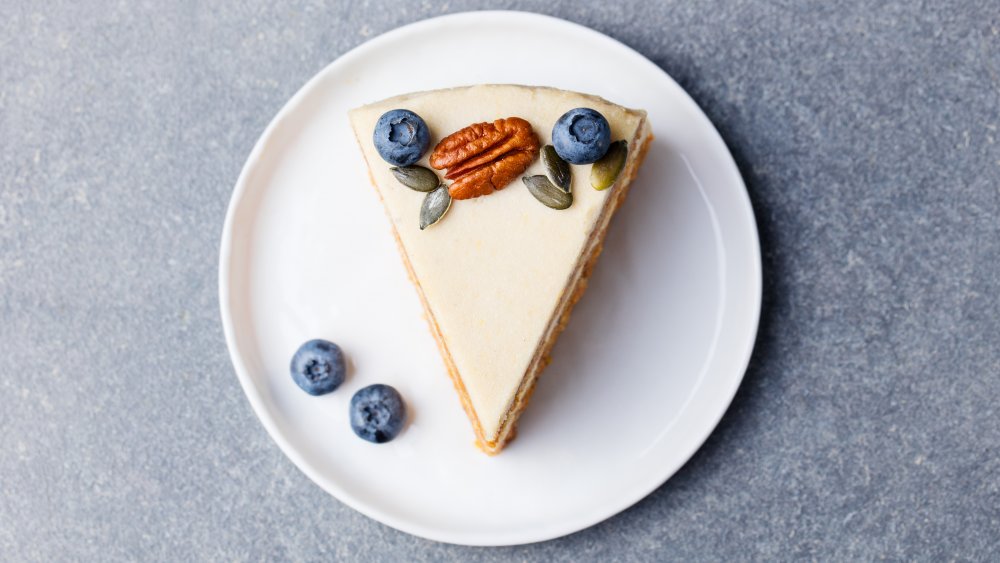Nutrition Expert Exposes Vegan Foods That Are Terrible For You
We may receive a commission on purchases made from links.
When it comes to the vegan diet, there is a clear and consistent marketing message that if you avoid all animal products, your diet will be substantially healthier, and you'll save the planet to boot (via BBC). Eat plants and protect the globe — sounds idyllic. And that campaign seems to be resonating with people in the U.S.; in the last 15 years, there's been a 300 percent increase in the number of folks following a vegan diet, rising to more than 9.7 million (via Vegan News).
But the sad truth is, it's not as simple as eating fruits, vegetables, whole grains, and legumes. There are plenty of plant-based, vegan meals, and snacks out there that are just as unhealthy as some of worst junk foods on the market. From juicy burgers, to crispy chicken nuggets, protein-rich snacks, and sweet desserts, there are countless animal-free products to satisfy our myriad cravings for flavor, texture, protein, and nutrition. But many of these packaged and prepared vegan foods contain an enormous amount of extra ingredients that you didn't really sign up for.
If it sounds impossible, it probably is
Let's start with the oh-so-popular veggie burger. One would think a burger made with plants would be wholesome, but many vegan patties are highly processed rounds of genetically engineered soy, paired with chemical additives (via MedLine Plus). Add a heavy dose of coconut oil and now you have a burger with more fat and sodium than a traditional beef patty (via Cooking Light).
Take the original Impossible Burger, which has 240 calories, 14 grams of fat (8 of which are saturated), and 370mg of sodium (via Impossible Foods). When the ingredient list starts with "water, soy protein isolate, coconut oil, sunflower oil...", it's no wonder the fat and saturated fat grams are sky-high. And if you've noticed that "going No. 2" is easier after downing one of these patties, it's probably because it contains methylcellulose, an additive traditionally used to treat constipation (via Everyday Health).
Now compare the vegan burger to a traditional beef burger, made with 100 percent ground beef. One beef patty has 159 calories, 10 grams of fat (4 of which are saturated), and 42mg of sodium (via USDA). Plus, there's one ingredient on the label, and it's beef. No need for a laxative here.
Let's head over to the chicken nugget section. Clearly, we're not expecting to see poultry on the label, but wouldn't that be more comforting than a laundry list of ingredients we've never heard of, including bamboo fiber (via Raised & Rooted)? Manufacturers add bamboo fiber, which is a stabilizer, according to Science Direct (to hold the patty together), and so they can jack up fiber grams on the nutrition label (via NPR). And some brands, like Morningstar Farms, add that peculiar, poop-producing methylcellulose you find in some veggie burgers.
A cookie that serves 2?
If you're looking to ramp up protein intake in the form of sweet snack, there are plenty of options touting plant-based protein, including The Chocolate Chip Complete Cookie. But take note, one cookie serves two. Share one firm and chewy cookie with a friend and you'll each down 210 calories, 6 grams of fat, and 12 grams of sugar. Eat it all by yourself and you can double those numbers.
Nobody expects a sweet treat to be a nutritional role model, but one would hope that a vegan option would have a simple nutrition label featuring all-natural ingredients. That's not always the case. There are over 30 ingredients in Just Desserts Vegan Midnight Chocolate Cupcake, and one cupcake has 440 calories, 20 grams of fat, and 42 grams of sugar (via Target). And one slice of Daiya New York Cheezecake (with almost 40 ingredients) will cost you 480 calories and 31 grams of fat (21 of which are saturated fat), and 22 grams of sugar (via Target).
It seems that when manufacturers take out butter, eggs, and other animal products, they often replace them with starches, gums, pectins, and other additives so they can reach the consistency and texture of the original (via Men's Health).
The takeaway? A vegan diet can be a wholesome and delicious way to enjoy great food and protect the planet. But a plant-based diet should be just that — loaded with plants. Eat fruits and vegetables in their whole form (the way you find them in the produce section) and choose packaged foods wisely. The shorter the ingredient list, the better.
Robin Miller is a nutritionist, chef, and food writer.


